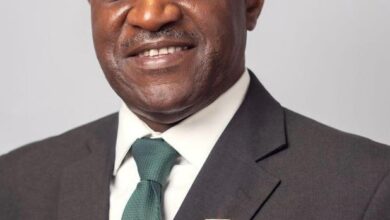C’tee Wants FG To Include Medical Simulation In Education Curriculum
By Alice Etuka, Abuja

The management of Tertiary Education Trust Fund (TETFund) has received report from its adhoc committee on medical simulation and innovation interventions with a strong recommendation for government to incorporate medical simulation in the education curriculum.
The committee also urged the Federal Government to establish multiple medical simulation centres across the country, at least one simulation centre in each geopolitical zone.
According to the findings of the committee, the estimated cost of setting up each simulation centre is between N4 to N6 billion, subject to inflationary trends.
Chairman of the committee and a world-renowned neurosurgeon, Prof. Wale Sulaiman, highlighted key findings and recommendations of the committee while presenting the report to the management of TETFund at a brief ceremony in Abuja.
The report which was received by the Chairman of Board of Trustees of TETFund, Aminu Bello Masari, called for urgent modernisation of medical practices in Nigeria including substantial investment in Artificial Intelligence (AI) technologies, to transform patient diagnostics and treatment.
Prof. Wale Sulaiman said invest in medical simulations would tremendously mprove Nigeria’s capacity to address the disease burdens in the country especially non-communicable diseases, maternal child health, accident and emergencies, traumas, infectious disease outbreaks and surgical care.
He said: “There is an urgent need for all healthcare regulatory bodies in Nigeria to incorporate medical simulation in the education curriculum of their trainees as well as accept medical simulation training as a critical component of Continuing medical education (CME) and proficiency training”.
He emphasised the need to accelerate the transition to integrated training curriculum in all healthcare institutions.
Sulaiman lamented that the absence of simulation centres is severely limiting the ability to train healthcare workers effectively.
“Modern educational practices are almost absent in Nigerian universities,” adding this lack of resources is especially apparent in the minimal use of advanced technologies like telemedicine and remote patient monitoring, which are essential for improving access to healthcare across the nation.
He underscored the importance of AI in transforming patient diagnostics and treatment, saying, “We must embrace AI-enabled technologies for interpreting medical diagnostics and supporting surgical procedures”. .
According to him, investing in innovative technologies is the most cost-effective way to meet the growing demand for medical care in the country.
“We must train our young population to become experts in these innovative technologies to minimise dependency on foreign experts,” he stated.
Chairman, Board of Trustees of TETFund, Aminu Bello Masari, in his response, commended members of the committee for their diligence, while also assuring them implementation of the recommendations, saying they would not be let down.
He maintained that AI was the future and Nigeria could not be left behind in new ways of doing things, especially the urgent need to prepare younger generation for the tomorrow.
Executive Secretary of TETFund, Arc Sonny Echono, applauded the committee for their commitment and dedication to timely submission of the report to guide the government on the next line of action.





